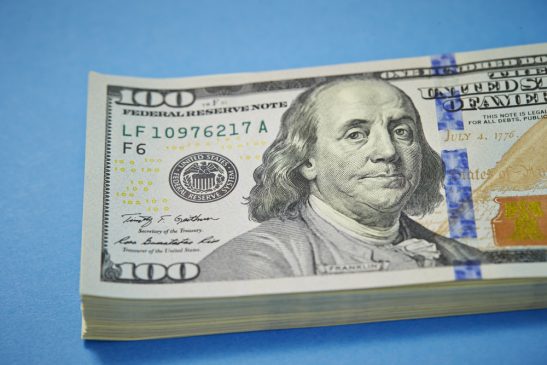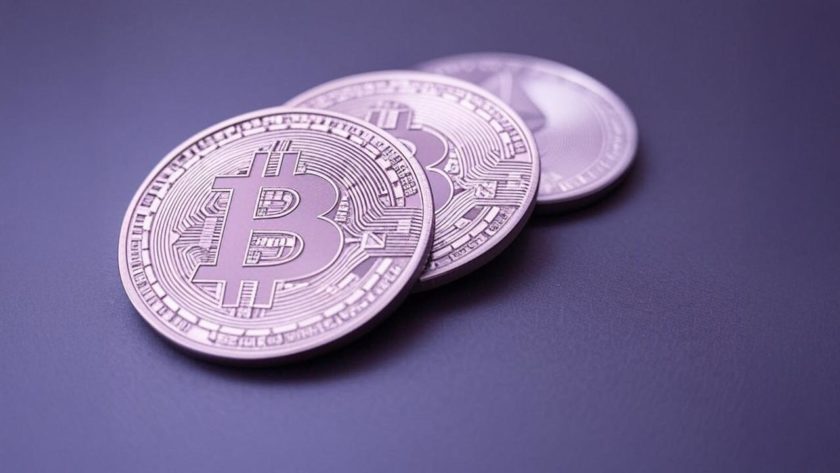The US national debt now stands at $21.974 trillion, a 10% increase since President Donald Trump took over the oval office. And according to Jake Chervinsky, bitcoin is just the needle people need to pop the debt bubble.
Fed Chair Jerome Powell, talking about the $22 trillion US debt:
“I’m very worried about it, but from the Fed’s standpoint . . . the long-run fiscal non-sustainability of the US federal government isn’t really something that plays into . . . our policy decisions.”
Buy bitcoin.
— Jake Chervinsky (@jchervinsky) February 1, 2019
The securities lawyer of Kobre & Kim LLP said Friday that investors should buy Bitcoin, a stateless digital asset, to protect their portfolios against the budget deficit. He advised after Federal Reserve chief Jerome Powell said at The Economic Club of Washington, D.C. that he was worried about the ballooning government debt.
“From the Fed’s standpoint, we’re looking at a business cycle length: that’s our frame of reference,” Powell said. “The long-run fiscal, non-sustainability of the U.S. federal government isn’t [really] something that plays into the medium term that is relevant for our policy decisions.”
Understanding the Debt Bubble
In retrospective, the national debt is a way of measuring what the US government owes to its creditors. Since the government always spends more than what it takes, the said debt continues to rise. For instance, under the Obama administration, the national debt had increased from $10 to $20 trillion – a spotless 100 percent.
In the past 60 years, the US government has struggled to balance the budget – by spending and earning at an equal level. Every passing administration left a higher debt burden for the next, starting with President Ronald Reagan via President Clinton to President Obama. The US never came out of the so-called debt bubble.
But it doesn’t necessarily mean that they cannot. After all, the US is sitting atop a dollar printing press.
Ideally, Uncle Sam can print its own money, unlike other nations. The size of their debts – arguably – does not matter because the government can pay its debt any day it wants. They would not have to impact the standard of living. According to the Bretton-Woods agreement, the World Bank and the IMF made US Dollar as the world’s only global reserve currency. That led governments across the globe to stash the greenback in their central banks. It created demand, and the US Federal Reserve limited supply.
As of now, there are approximately 1.2 trillion US Dollars in circulation. That is not enough to settle day-to-day global trades: to purchase oil, gas, coffee, corns, and even iPhones. Countries, on the other hand, are sitting atop larger dollar reserves. China, for instance, has $4 trillion; Japan has over $1 trillion – and so on.
Why Bitcoin?
The only thing that changed between then and now is the internet. The millennials now have information about the debt bubble. They understand how every dollar in their pocket is indebted. They also realize that their own national currency is indebted to an-already indebted US Dollar.
Bitcoin enthusiasts project the digital currency as a solution to beat down the dollar hegemony. It expects millennials to exchange their national fiats for a technology that is independent of the US debts, government policies, Federal rate hikes, and whatnot.
Vinny Lingham, the founder of Civic, said that bitcoin’s intrinsic attractiveness against the debt bubble would attract more wealth.
“More wealth will be created in crypto over the next 10 years, than over the prior 10 years,” said Lingham. But remember, like any success story, it’s not going to be a straight line up. Keep believing and just be patient.”
Erik Voorhees, the founder of Shapeshift, hoped that the world would hedge their savings into bitcoin once the next financial crisis hits.
When the next global financial crisis occurs, and the world realizes organizations with $20 trillion in debt can’t possibly ever pay it back, and thus must print it instead, and thus fiat is doomed… watch what happens to crypto.
— Erik Voorhees (@ErikVoorhees) November 8, 2018
“They,” Voorhees said while referring to cryptocurrencies like Bitcoin, “may drop during the early phase liquidity crunch, but ultimately the world will move away from fiat money (printed without end, trending toward zero) toward crypto money (known, transparent, fixed supply, not subject to politicians’ opportunism).”
At the same time, economists have a different opinion. Nouriel Roubini, a New York-based financial expert, said that bitcoin was a mother of all scams. He added that cryptocurrencies were a wet dream of individuals with zero financial literacy. Warren Buffet, a Wall Street investment giant, refused to consider Bitcoin as an investment.
“If you buy something like bitcoin or some cryptocurrency, you don’t have anything that is producing anything,” Buffett said in an interview with Yahoo Finance. “You’re just hoping the next guy pays more. And you only feel you’ll find the next guy to pay more if he thinks he’s going to find someone that’s going to pay more.”




